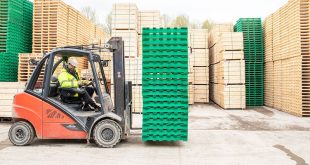Despite rising costs and diverging performance across sectors, the construction industry saw its 18th consecutive quarter of growth according to the the Construction Products Association’s Construction Trade Survey for Q3 2017.
Demand was drven in particular by increased demand in private housing, repair and maintenance and infrastructure. Net balances for enquiries and expected product sales for the year ahead remained muted, however, and contractors’ order books were sustained by work in only three sectors: private housing, housing R&M and non-housing R&M. New orders were reported lower in sectors such as commercial, industrial and public non-housing, which account for one-third of construction output.
Some 92% of main contractors, 85% of heavy side manufacturers and all light side manufacturers reported a rise in raw materials costs in Q3, in the wake of the fall in the value of the pound following the Brexit referendum in 2016. In spite of this, only a small proportion of contractors are increasing tender prices and, as a result, 31% of main contractors reported a fall in margins, the worst balance in five years.
Rebecca Larkin, Senior Economist at the CPA, said: “This 18th consecutive quarter of growth reported by the industry stands in contrast to the construction recession in preliminary GDP data from the ONS. There is a clear division in fortunes across sectors, however, with weakness in the commercial and industrial sectors offset by strength in new build private housing, a sector where demand and confidence remain supported by the Help to Buy equity loan.
“In common with the wider economy, the construction industry continues to experience cost inflation, particularly for raw materials. A clear consequence of the supply chain trying to absorb these higher costs is the fall in contractors’ profit margins since the start of the year. Combined with a smaller pipeline of upcoming work in some key sectors, the survey’s more mixed view on near-term industry prospects is not surprising.”

CECA Director of External Affairs, Marie-Claude Hemming, said: “It is good news that our members see growth in infrastructure, to the benefit of businesses and communities across the country. However, uncertainty continues to act as a drag on the ability of the construction industry more generally to boost the economy. Ahead of the Autumn Budget, we are calling on the UK Government to commit to the projects outlined in the National Infrastructure Delivery Plan, to secure the foundations of a strong economy, drive productivity, and deliver post-Brexit growth.”
Key survey findings include:
– 40% of main building contractors, on balance, reported that construction output rose in the third quarter of 2017 compared with a year ago
– 20% of specialist contractors reported a rise in output during Q3
– 24% of civil engineers, on balance, reported an increase in workloads during Q3
– On balance, 21% of SME contractors reported increased workloads in Q3 compared to three months earlier
– Main contractors reported higher orders in private housing and both housing and non-housing R&M
– 13% of civil engineering firms reported an increase in new orders in Q3, on balance
– 26% of SMEs but no specialist contractors reported an increase in enquiries in Q3, on balance
– Overall costs increased for 82% of civil engineering contractors, whilst 92% of main contractors, 85% of heavy side manufacturers and all light side manufacturers reported raw materials costs rose in Q3.
 Builders Merchants Journal – BMJ Publishing to Builders Merchants and the UK merchanting industry for more than 95 years
Builders Merchants Journal – BMJ Publishing to Builders Merchants and the UK merchanting industry for more than 95 years



